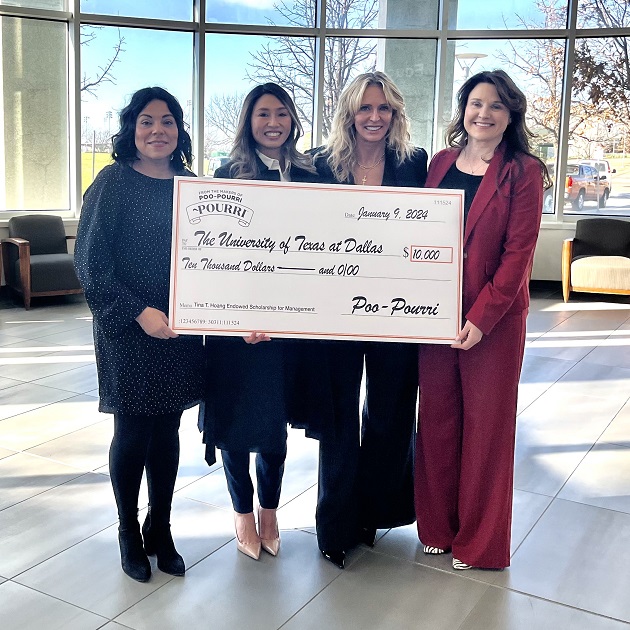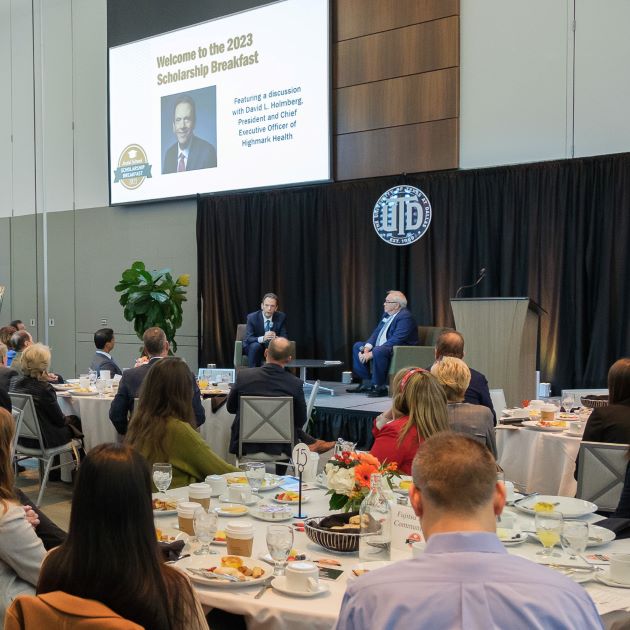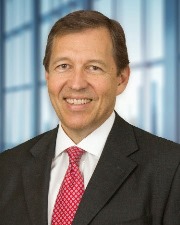
Big changes are in store for the 18th Annual Corporate Governance Conference at the Naveen Jindal School of Management. Presented by the Institute for Excellence in Corporate Governance, the all-day Aug. 27 event will take place virtually for the first time. Not only that, but Gregg Ballew, a professor of practice in the Accounting Area, will be the master of ceremonies, having succeeded Dennis McCuistion as the institute’s executive director.
“Since we’ve got a number of different issues boards are facing right now because of the economy we’re dealing with, we found a wide breadth of speakers this year to cover areas that are most relevant to them,” Ballew said. “We have a speaker from the U.S. Securities and Exchange Commission, speakers who will discuss business in China; environmental, social and corporate governance; and private company governance. It’s a great slate of presenters.”
The Max Hopper Distinguished Speaker

Phillip Dunkelberger, president and CEO of Nok Nok Labs, will be the Max Hopper Distinguished Speaker, the conference’s signature solo event, with his presentation, “Leadership Lessons of Max Hopper in a World of Digital Disruption.” Hopper was one of the original digital disruptors in the travel agency industry, having pioneered the use of the Sabre airline computer reservation system in the mid-1970s. Dunkelberger will speak about governance principles he learned from Hopper.
“Although Max is remembered as a technology innovator, I think Phil will make the case that Max also left a legacy around governance based on what he practiced and taught,” Ballew said. “This will be a fairly personalized story based on the impact Max had on Phil’s career.”
SEC Updates
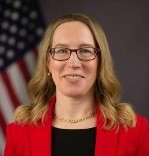
Hester Peirce, who serves as a commissioner on the U.S. Securities and Exchange Commission, will discuss in her afternoon presentation the tensions between the interests of shareholders and the interests of other involved parties such as employees, vendors and customers.
Recently appointed to her second term as a commissioner, Peirce told Ballew in a pre-conference call that she is prepared, if asked, to address her priorities for this term.
“She also likes to discuss cryptocurrency and the recent SEC proxy ruling, but she would prefer to field our conference participants’ own questions around issues of interest to them,” he said. “It’s a great opportunity for attendees to engage with an expert in financial market regulation.”
The New Executive Director
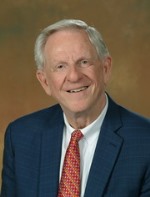
Ballew, who has four decades of experience in banking, investment management and wealth advisory services, has held leadership positions at Westwood Wealth Management, Northern Trust and Bank of America. He has been on the institute’s advisory board for eight years and took its leadership baton from McCuistion in July.
Sharon Foster, the institute’s program manager, said McCuistion, who recently retired, left the institute in good shape for Ballew.
“Dennis left us a really great legacy here at the institute,” Foster said. “We will honor his efforts by continuing to build on them.”
The Governance Capital Model
Three major initiatives for the institute will be at the forefront of Ballew’s mind in the near and long-term future. First is the introduction of the Governance Capital Model, a methodology that helps companies and nonprofit organizations be better at corporate governance. It was developed by the institute’s board of directors, Ballew said. He anticipates a favorable, broad reception from the community.
“I see ramping up this Governance Capital Model and its application to the entire world,” he said. “That’s really where I want to take things over the next couple of years. Structurally, the model is a way to assess management disciplines, specific outcomes and governance dimensions, as well as measure the level of governance capital available to help steer an organization toward success. It also helps evaluate and eliminate any governance gaps that may exist.”
Relying on Research and Building New Funding
Ballew also anticipates spearheading the development of initiatives that can draw extensively on academic research related to governance that is conducted by UT Dallas, led by Jindal School faculty members Dr. Suresh Radhakrishnan and Dr. Rebecca Files.
Finally, Ballew plans to work closely with the Jindal School’s development and alumni relations team to build up long-term funding for the institute so that it can become self-sustaining.
“Our team will continue to build out ways to support the institute in alignment with the University’s fundraising efforts,’ he said. “If we can focus on the first two initiatives, then the third will take care of itself as we continue to demonstrate value to the business and nonprofit communities.”




